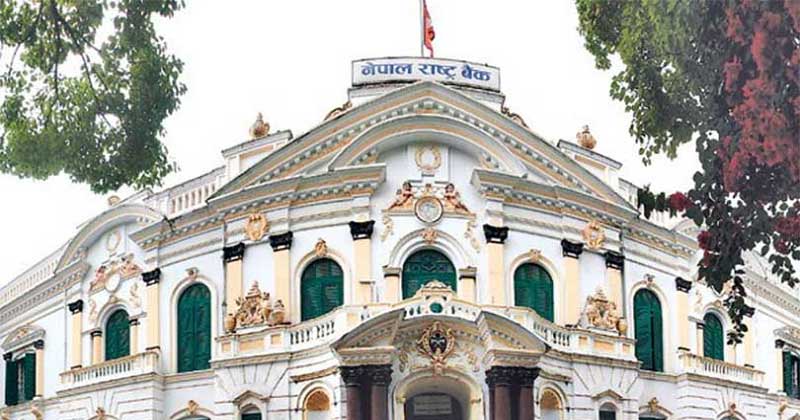
NRB Should Emphasis on Technology-friendly Monetary Policy:
While the Nepal Rastra Bank (NRB) is preparing a new monetary policy, stakeholders have urged to increase the use of technology to overcome the current crisis and maintain financial stability. Chairman of the Nepal Bankers' Association, Bhuvan Dahal, has suggested that the refinancing facility should be extended only to businesses that have been severely affected by the corona and take a long time to recover. He said that the banks should be strong in the financial indicators to face the possible challenges in the coming days rather than sharing the profits.
Dahal said the number of mobile banking users has increased by 60 to 70 percent since March. He said that in order to improve the payment system and promote digital banking, it is necessary to move ahead with a clear goal of reducing the level of cash transactions in the next five years. He said that a decision should be taken through monetary policy to reduce the current limit of cash transactions from 1 million to 1 or 2 lakh.
Chairman of the Finance Companies Association Saroj Kaji Tuladhar said that the arrangement of paying 25 percent interest on loan restructuring would be difficult for some entrepreneurs in the current situation. He also said that the provision of adding a 10 percent loan for working capital should be reconsidered. "Not everyone needs 10 percent, some need more than that," he said. Therefore, the right to make such a choice should be given to the banks and financial institutions. '
Tuladhar argued that the interest rate on deposits should not be reduced under pressure to reduce interest rates on loans and that mergers should not be given too much importance. He said sales of small vehicles and two-wheelers could increase in the coming days as the use of public transport decreases due to the risk of lockdowns and coronaviruses. He said that the facility of giving loans by reducing the initial payment and interest rate as much as possible is needed for this. He also said that a centralized customer identification system should be developed to eliminate the hassle of filling up different customer identification forms when opening an account in every bank and financial institution.
Chairman of the Nepal Microfinance Bankers' Association, Basanta Lamsal, said that the monetary policy should pave the way for the microfinance institution to accommodate 4.7 million people from poor families. He said that this could range from providing conditional deposit collection facilities to mobilizing alternative resources to set up a separate fund.
President of the National Federation of Cooperatives Minraj Kandel, on the other hand, said that it was necessary to take a policy to include the cooperative sector in the national payment gateway. He urged the government to make arrangements for refinancing and concessional loans through cooperatives, to bring cooperatives under the jurisdiction of monetary policy, and to include Rastriya Sahakari Bank in the Nepal Clearing House.
Analysts say that monetary policy should play a role in saving small and medium enterprises, which are currently in trouble, and creating more jobs. He said that rural finance should be improved and the interests of depositors should be addressed in a balanced manner.
Financial analyst Sanjeev Subba said that in the current situation, emphasis should be laid on digital banking and financial inclusion. In the past, campaigns like One House One Account have made it difficult to reach financial inclusion, he said. He said that the recent provision of direct loans to 10 to 15 poor people was also inappropriate. He said that such work should be carried out by opening microfinance or any other suitable institution.
Subba suggested banks issue green bonds to raise capital to invest more money. He said that such bonds with the guarantee of investing only in environment-friendly projects would help in attracting money from the external market. Citing the example of India, Subba said that technology-based financial services should be provided to boost rural banking in Nepal. He said that one can go for options like making the payment system one-stop, making ATM card universal.




